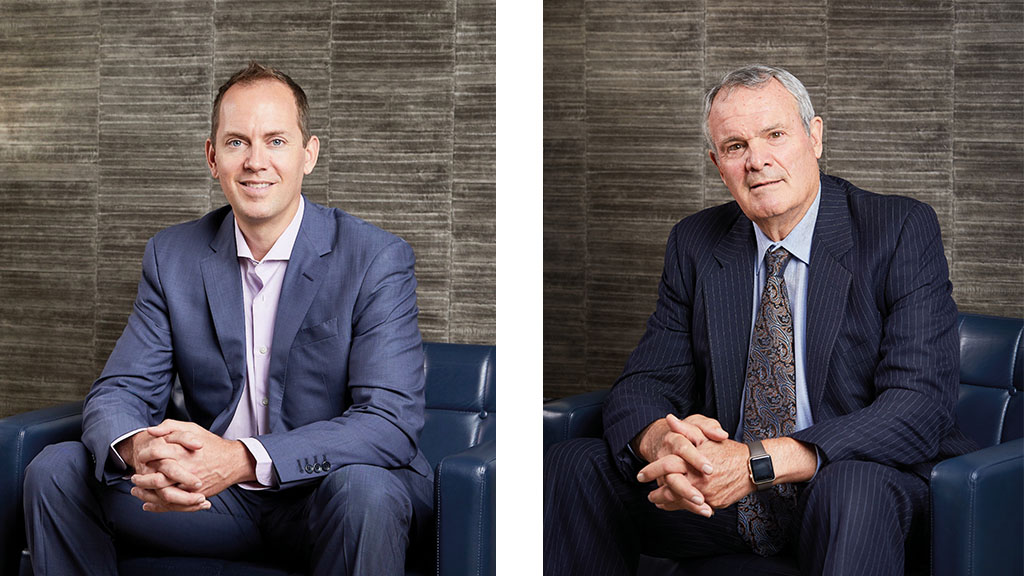‘As the CEO of a fifth-generation family office,’ writes Brendan Holt-Dunn of the Holdun Family Office, ‘my inspiration is from my father, who has taught me well, sharing his experiences and providing insight on family, responsibility and prosperity. I asked my father what our operation was like in the ’60s, and to compare it with today.’
Here are Stuart’s recollections.

THE CHALLENGES and opportunities for us, and other family offices, change with the years. In the 1960s, the main focus was on managing the wealth of Sir Herbert Holt, my great-grandfather, who migrated to Canada from Ireland in 1875 at the age of 20. By the time of his death, in 1941, Sir Herbert had amassed a sizeable fortune.
He became one of Canada’s foremost industrialists and, at the peak of his career, had more than 300 companies on four continents under his control. From 1908 to 1941, he was the longest-serving president and chairman of the Royal Bank of Canada. He was also the president of 27 major business corporations — and it didn’t end there.
Sir Herbert also established the Montreal Light, Heat and Power company, the largest privately-owned utility in the world, before it was expropriated by the Quebec government in 1944 and became Hydro Quebec.
In the ‘60s, we concentrated on wealth management, which involved setting the appropriate asset mix for the family portfolio and the selection of external managers, as well as making decisions on philanthropic contributions. Today, these challenges have multiplied — as has the number of family members covering three generations. As wealth management is still central to our family office, a myriad of new opportunities have emerged, along with new challenges.
New asset classes such as private equity, venture capital and real estate — to name a few — were in their infancy in the 1960s or non-existent, but today they have become mainstream.
The allocation to private equity and real estate has been on the rise, and families want greater diversification, reduced portfolio volatility, and higher returns. There is also a growing preference to invest directly, and to take operational control rather than investing through funds. Do family offices have the necessary skill set to manage these new asset classes; do they have to bring in the requisite expertise? With more asset classes under management, tools and improved analyses and reporting models are required.
Moving forward, family offices must accept that the digital world has affected all industries and is essential to embracing the available solutions if they wish to remain competitive. Advanced technologies such as AI and robotics are changing the way the financial industry operates, and unsurprisingly, the new generation is exploring these innovations. Clients are the focus of any Family Office (as they are in all industries). In a digital world, the challenge is to meet client needs without compromising trust and personal information.
This brings up the issue of cybersecurity, and family offices are falling victim to targeted data breaches. The volume and complexity of cyberattacks is rising and family offices are vulnerable — often due to the lack the expertise required to fully assess risks and resources. As a result, offices must address the state of their IT systems and establish the necessary protection required.
For many families, including our own, the greatest challenge is, and always will be, generational change.
The next generation needs to be prepared to take over the responsibility to lead family offices. Not all of them are, but this is an opportunity for growth. How does a family member protect their assets? By attending board meetings, spending time with portfolio managers, by learning and understanding corporate governance and Family Office strategy structures.
Ultimately, they must develop their financial and management skills. When the moment arrives, the family will be prepared to handle what lies ahead. For the family office, time and attention must be devoted to each client. This in turn will improve the experience for offices and clients.
Helping each client to understand their role, and passing on skills and knowledge to the next generation, is key to all family offices. How to deal with these challenges is a determining factor in continued success.






























